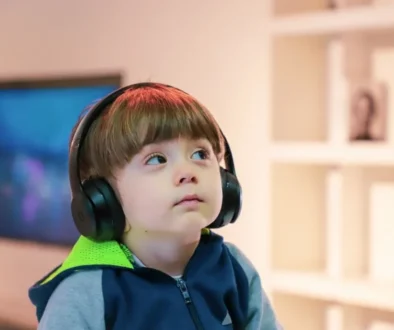The Link Between Autism and Food Allergies in Children
Did you know that children with an autism spectrum disorder (ASD) are more likely to suffer from food allergies?
Food allergies can make caring for children much more complicated. As a parent/caregiver, you’d have to make sure that your child never comes in contact with their allergen. Dealing with food allergies in children can be anxiety-provoking.
But, understanding how food allergies work can help you better care for your child.
To learn more about why your child with autism may be at an increased risk for food allergies, keep reading.
What Are Food Allergies?
Food allergies work like any other allergy: the body produces inflammation in response to specific triggers.
Some children’s bodies create a response when they eat the foods. But, in some children, the body can produce a response in the presence of specific foods. This means that these children may experience symptoms of food allergies if their allergen is in the same room as them.
They don’t have to eat the food to have an allergic reaction.
When they’re exposed to their food allergen, their bodies produce immunoglobins E or IgE. Once the body releases these antibodies, histamines and other inflammatory compounds join the response.
These molecules can cause the symptoms we all associate with allergic reactions: a runny nose, congestion, sneezing, coughing, and more. If the bodily reaction is extreme, it may lead to anaphylactic shock.
Alternatively, the body can have a non-IgE allergic response. The particles that cause these kinds of responses are known as allergens.
Without the allergen present, the body will not elicit a standard allergy response. Rather, the child may begin feeling pain and discomfort. These non-IgE bodily responses are common when it comes to food allergies.
Signs of Food Allergies
The biggest problem with food allergies in children with autism is communicating about them. Children with autism have difficulty communicating how they’re feeling. So, they may not be able to let you know that they’re feeling poorly after eating a particular food.
Instead of relying on their spoken world, you should pay attention to any changes in behavior. You may notice that your child becomes avoidant or moody.
A food allergy could look like a meltdown.
Here are a few ways food allergies may present in children with an autism diagnosis:
- Irritability
- Hyperactivity
- Repeating behaviors
- Difficulting focusing
- Trouble sleeping
If your child is showcasing these symptoms, you should think about what they’ve recently eaten. If they’ve shown a consistent behavior change with one food, it could be a sign of an allergy.
Tracking all of these symptoms can be overwhelming, though, especially if you have more than one child. So, we recommend keeping a food journal. This is incredibly important when you’re noticing patterns or introducing new foods.
When you see your child’s physician, bring this food journal and let them know about any patterns you’ve noticed.
Eosinophilic Esophagitis
Eosinophilic esophagitis (EoE) is a dangerous type of allergic response that is more common in people with autism.
After exposure to a trigger food, the esophagus becomes inflamed. Over time, eosinophils (a type of white blood cell) start accumulating in the esophagus, leading to chronic inflammation.
These processes lead to many symptoms:
- Nausea and vomiting
- Abdominal pain
- Chest pain
- Poor appetite
- Refusal to eat secondary to pain
- Difficulty swallowing
- Difficulty sleeping
- Failure to thrive
- Food impaction in the esophagus
- Acid reflux that is unresponsive to medication
The sum of these bodily responses is likely related to IgE and non-IgE immune responses. If your child is displaying these symptoms, you should alert your child’s medical provider.
Food Allergies in Children With Autism
There is strong evidence for the link between food allergies and children with autism.
A 20-year study evaluated nearly 200,000 children between the ages of 3 and 17 years old. Nearly 2,000 of those children fell somewhere on the autism spectrum.
During the study, epidemiologists made notes about children who experienced symptoms related to skin allergies. They included respiratory changes, dermatological changes, and other important signs.
From this data collection effort, they found that a little more than 11% of children with autism had some kind of food allergy. In comparison, a little more than 4% of neurotypical children had evidence of a food allergy.
Likewise, researchers believe that children with an autism diagnosis are more likely to form food sensitivities. Differences in the gut biomes of those on the autism spectrum may explain indigestion and other gastrointestinal problems.
Previous animal models have shown us that the composition of the gut biome may be a predominant trigger in producing symptoms associated with autism. Similarly, autism is related to brain function and immune system health.
Due to varying levels of amino acids, the bodies of people with autism may be more porous, allowing for a stronger immune response. This can cause increased inflammation throughout the body, including in the gastrointestinal tract.
To help your child manage their gut health, you should talk with their physician. They may recommend dietary adjustments, probiotics, supplements, and/or behavior therapy.
Common Food Allergies for Children With Autism
As with anyone, children with autism can develop an allergy to anything. However, there are a few more allergens that are more common:
- Casein (milk protein)
- Gluten (wheat protein)
- Soy proteins
- Corn proteins
- Egg proteins
These are the most common food allergies in children with autism. However, your child may develop allergies to peanuts, shellfish, or tree nuts. Although, these are present in similar quantities for neurotypical children.
Go to Developmental Pediatrics in Texas
Food allergies in children with autism are common, and every parent with a child who has autism should stay vigilant. Watch for symptoms of food allergies and communicate any notable changes with your child’s physician.
If you’re looking for a pediatrician who understands how to make an autism diet for every child, go to Developmental Pediatrics in Texas. Our team understands how a great diet for autism can help children feel better.
And, we’re updated on popular trends like autism and gluten-free diet.
If you’re ready to get started, sign up for an assessment.



